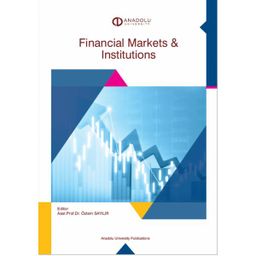Hakkında
Unvan:
Yazar
Okurlar
1 okur okudu.
Sözler ve Alıntılar
2008-2009 Global Financial and Economic Crisis:
In the aftermath of September 11 2001, due to the economic downturn in the US, the Central Bank reduced the interest rate, which was %6 in 2001 to %3 in 2003 to stimulate the country's economy. (...) With the impact of low interest rates, financial institutions took more risks and started to market the mortgage loans for low-income households in order to earn more profits. (...) The reason for the start of the crisis was that the housing loans given with low interest rates, which were not paid back to the banks when the due dates came. (...) (After this crisis) The thesis of solving all the problems of the market by itself or with self-regulation was no longer spoken. (...)
The global crisis resulted in serious increases in public deficits and debt stocks in European Union (EU) countries and (...) (caused the 2010 European Sovereign Debt Crisis). (...) The debt crisis that broke out in Greece in the second quarter of 2010 threatened the future of other Eurozone countries and even the economic or monetary union in a short time. The fact that some member states, especially Germany, were reluctant to help Greece caused panic in the markets and, as a result, the public finance and banking sector in Ireland, Portugal, Spain and Italy faced threats to drift into the debt crisis.
Sayfa 153Kitabı okudu
1929 Great Depression:
While World War I was a destruction in terms of defeated states, the victorious states that did not fight the war on their own territory were saved from this destructive effect. The US was the luckiest of these countries because at the same time it had a significant portion of the gold reserves in the world, and
Sayfa 149Kitabı okudu
Some of the debt crises from past to today are as follows. (Yavuz et al, 2013; Ulusoy, 2012):
* The crisis in Southeast Asia in 1990s
* The Mexican crisis in 1994,
* The crisis in Russia in 1998 (which is a classic bad management crisis)
* The crisis in Argentina in 2000,
* European debt crisis that started in Greece, Portugal and Irelans in 2010 and later included Italy and Spain.
Sayfa 151Kitabı okudu
Financial Sector in Turkey: Banks, portfolio management companies, insurance companies, unemployment insurance fund, pension investment funds, real estate investment trusts, financial leasing companies, factoring companies, intermediary institutions, financial companies, reinsurance companies, venture capital funds, securities investment trusts
Sayfa 21Kitabı okudu
1980 Global Debt Crisis:
After World War II, emerging economies started to receive debts from the international market and a worldwide debt problem did not arise until the last quarter of the 1970s. (...)
In October 1973, with the start of the Arab-Israeli War, Arab stated stopped oil shipments to the US and Western European countries. Shortly after that, OPEC increased oil prices dramatically. The oil demand that grew in 1973 and the lack of alternative energy sources caused western economies to experience a significantly expensive cost. (...) As a result, inflationary pressures in developing countries increased steadily and the crisis began to be felt more deeply. (...) The second oil crisis which broke out in 1979-1980 further increased the current account deficits of undeveloped countries which did not export oil. (...)
The world debt crisis emerged on 12 August 1982 when Mexico declared a moratorium. Following this incident , many developing countries, mainly Latin American countries, declared moratorium and thus the world recognized the existence of the global debt crisis. (...)
As a result of all these developments, the 1980 transformation took place and a liberal economy was adopted (in Turkey).
Sayfa 151Kitabı okudu
İletiler
Henüz kayıt yok
Yorumlar ve İncelemeler
Henüz kayıt yok
